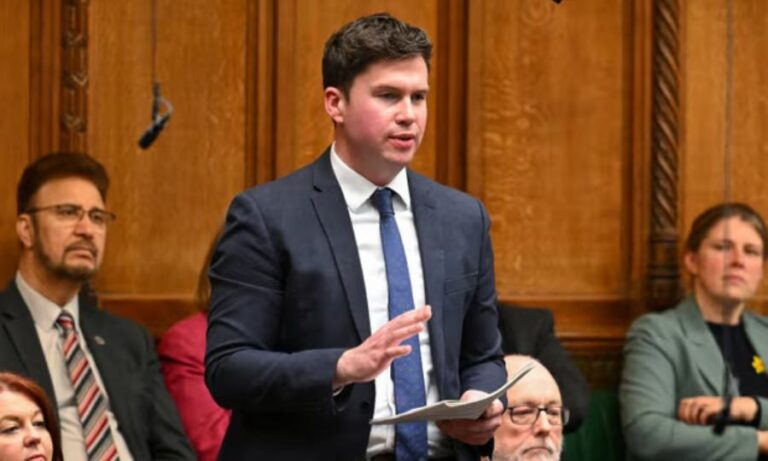A bold move by Dan Carden, Labour MP for Liverpool Walton, is sparking significant conversation across the UK as he becomes the first from his party to publicly demand a national inquiry into grooming gangs. Amidst governmental hesitation, Carden’s call underscores a growing public demand for justice and a more assertive response from the state.
In a statement to the Liverpool Echo, Carden expressed deep concern over the lack of decisive action from those in power, who he accuses of historically avoiding the issue due to racial, cultural, or socio-economic biases. “The public compassion for the victims, thousands of young British working-class girls and children is real. The public call for justice must be heeded,” Carden stated, highlighting the need to confront the failures head-on and adopt a new approach to multiculturalism that ensures the protection of all members of society.
While the government, including Labour leader Keir Starmer and safeguarding minister Jess Phillips, has previously hinted at openness to an inquiry, their focus has remained on implementing the recommendations of the 2022 report on child sexual abuse, authored by Professor Alexis Jay. This report, while comprehensive, has led some like Carden to argue that further steps are necessary to fully address the issue.
Carden’s call for an inquiry comes at a time when the government faces criticism for its handling of child welfare issues. The Conservatives recently attempted to block the government’s children’s well-being and schools bill to force a debate on the necessity of a new inquiry. Despite these political maneuvers, Carden himself did not vote in this instance but continued to push for a clearer and more robust governmental stance on the matter.
He emphasized the importance of the government sending a clear message about its priorities: “It must communicate a clear message about whose side it is on and now direct the state to implement the rule of law without fear [or] favor and deliver justice. The prime minister must use the full power of the state to deliver justice. It must continue to unflinchingly pursue the perpetrators and bring to account those in positions of authority who turned a blind eye, failed to act, or gave political cover to the gangs.”
The sentiment for a deeper investigation into grooming gangs is not isolated to Carden alone. Andy Burnham, the Mayor of Greater Manchester, has also supported the call for a “limited” national inquiry. Speaking to BBC Radio Manchester, Burnham emphasized the need to pool insights from various regional investigations to address national issues and ensure accountability. “I do think there is the case for a limited national inquiry that draws on reviews like the one that I commissioned, and the one we have seen in Rotherham, the one we have seen in Telford, to draw out some of these national issues and compel people to give evidence who then may have charges to answer and be held to account,” said Burnham.
Meanwhile, Home Secretary Yvette Cooper announced that the government would begin to implement mandatory reporting of child sexual abuse, as recommended by Prof. Jay, with more details expected in the coming weeks. Despite this progress, the debate over whether an additional inquiry is necessary continues to divide opinion.
Prof. Jay herself has expressed reservations about launching another inquiry, suggesting that it could delay the implementation of her existing recommendations. This stance presents a significant point of contention, as advocates for the inquiry argue that her recommendations alone do not fully address the systemic issues at play or the need for more comprehensive reforms.
As the debate unfolds, the UK faces a critical moment in its handling of child protection and justice for victims of grooming gangs. The calls for a national inquiry are about more than just investigating past failures; they are about setting a precedent for how vulnerable populations are protected and how justice is administered in cases of severe community and systemic failings.
The challenge now for the government and opposition alike is to navigate these complex issues with sensitivity and firmness, ensuring that any actions taken are in the best interests of the victims and society at large. As Carden and others press for more definitive action, the coming weeks will be crucial in determining the trajectory of the UK’s response to one of its most troubling social issues.

